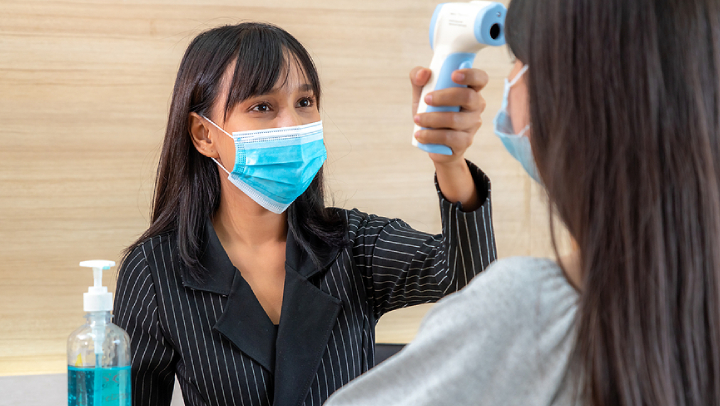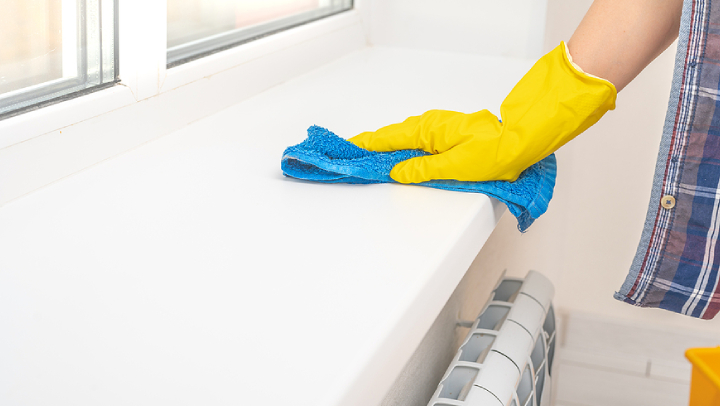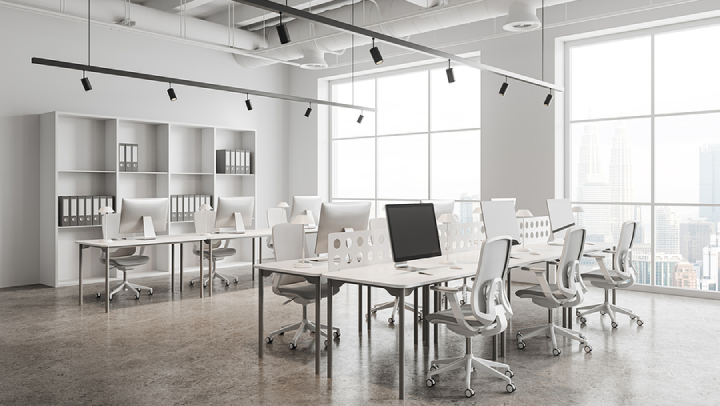Singapore’s office landscape has evolved rapidly over the past few years, but one thing remains certain, hygiene is no longer just a ‘nice to have’. The pandemic has permanently shifted the way businesses view cleanliness, especially within shared workspaces. While mask mandates and safe distancing markers may be things of the past, the heightened awareness around germs and viruses still influences workplace behaviour and expectations. So, is post-COVID office hygiene still a priority in 2025? Absolutely — and for good reason.
Cleanliness is now tied to staff confidence
Gone are the days when wiping down desks once a week was considered sufficient. Today’s employees are more informed, and many expect a visibly clean and sanitised office environment. For hybrid teams, returning to the office part-time often depends on how safe the workspace feels. Regularly cleaned high-touch surfaces, spotless pantries and well-maintained toilets aren’t just perks, they’re signals that management values health and wellbeing.
Employees want to know that the environment they’re stepping into is not just pleasant, but hygienic. This expectation has made professional cleaning services an essential part of workplace operations rather than a behind-the-scenes function.
More than a routine wipe-down
Office hygiene today goes beyond visual cleanliness. To safeguard your office against COVID-19, businesses are paying closer attention to indoor air quality, surface disinfecting, and proper waste management. Office equipment like printers, shared monitors, phones, and pantry appliances all require frequent cleaning, yet are often neglected.
For small to medium-sized companies, part-time office cleaning services in Singapore have become a practical solution. These services allow businesses to maintain a high level of hygiene without the cost of a full-time cleaner. The flexibility helps companies stay compliant with basic health and safety practices while adapting to changing office routines.
Client perception still matters
Office hygiene isn’t just for internal teams. Clients and visitors often form quick impressions based on the cleanliness of a reception area, meeting room or even a bathroom. A dusty conference table or stained carpet can subtly signal neglect, which might reflect poorly on your brand.
In competitive industries like finance, consulting and tech, this matters. Maintaining a professional image means ensuring that your workspace is as polished as your pitch. This is where scheduled cleaning and a proactive approach to hygiene can give businesses a silent but significant edge.
Cleaner offices, fewer sick days
The productivity benefits of a clean office aren’t limited to aesthetics. Regular cleaning can help reduce the spread of viruses, bacteria and allergens — which directly leads to fewer employee sick days. This isn’t just a health win, it’s a financial one. Fewer absences mean smoother operations, better morale and reduced pressure on lean teams.
Even though COVID-19 no longer dominates headlines, seasonal flu and other transmissible illnesses remain a concern. In densely populated office buildings, where staff share elevators, washrooms and pantry spaces, frequent disinfection still plays a key role in overall hygiene.
Remote work did not erase hygiene responsibilities
The rise of remote and hybrid work arrangements might have reduced the number of people in the office on a daily basis, but that doesn’t mean cleaning standards can slip. In fact, fluctuating headcounts can make it harder to predict how often certain areas are used.
Some days might be relatively quiet, while others could see near full capacity due to team meetings or client visits. This unpredictability makes it even more important to have a cleaning routine that is consistent, regardless of headcount. Routine cleaning gives peace of mind and helps maintain a level of hygiene that feels consistent and reassuring.
Sustainability and hygiene go hand in hand
Singapore’s push towards becoming a green and sustainable city has encouraged many businesses to rethink their cleaning practices. Eco-friendly cleaning solutions and energy-efficient tools are gaining popularity, as companies look for ways to minimise their environmental impact while maintaining cleanliness.
This shift shows that hygiene doesn’t have to come at the expense of sustainability. In fact, combining both can strengthen a business’s image, particularly among younger staff and environmentally conscious clients.
A long-term mindset is the new norm
The urgency of 2020 may have faded, but the lessons from the pandemic continue to shape workplace standards. Office hygiene is no longer viewed as a temporary fix or an emergency response, but as part of a long-term strategy for workplace wellness. Clean and hygienic offices are now integral to employee retention, client satisfaction and overall productivity.
This shift in mindset has made businesses more willing to invest in quality cleaning services. Whether it’s a daily cleaning routine or periodic deep cleans, the focus is on consistency and reliability.
Keep hygiene a daily priority with Abba
Hygiene in the office isn’t a passing trend, it’s a workplace standard that’s here to stay. For teams looking to maintain a healthy, safe and productive environment, daily cleaning is non-negotiable. Whether it’s through flexible schedules, experienced cleaners or sustainable cleaning methods, Abba makes it easy to uphold high standards without disrupting your workflow.
Learn more about how we help businesses stay clean and confident at Abba.



